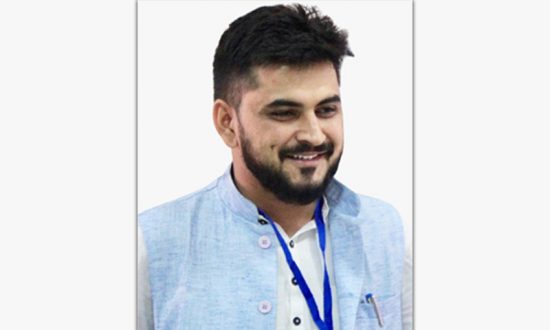Jagdish Bishnoi is a Social Entrepreneur and Development Consultant based out of New Delhi, India and Founder and CEO of SAFL India Foundation. He has worked as a fellow under the Aspirational District Transformation Program of NITI Aayog to consult top educational officials at Assam. Jagdish holds a graduation degree in Political Science from the University of Delhi and a Master’s Degree in Public Administration from Banaras Hindu University. He is driven with a mission to create a sustainable impact in the educational ecosystem through SDG-17.
Worldwide due to the COVID, almost all schools and institutions were closed but most schools are trying to continue the teaching-learning process in critical situations through virtual mode. I do not believe that only online mode can be the replacement of classroom teaching-learning but an effective way for teaching-learning in critical times like COVID. Online learning is opted out these days due to the shutdown of schools. It is providing an opportunity to schools, where they can continue teaching-learning but a teacher-student relationship can be best established in a classroom only. The quality level of interaction and the questions from students cannot happen effectively in the online mode. Online learning provides a good substitute for classroom learning in a time of emergency but it cannot replace the classroom environment. Classroom learning remains the main option. It is a better mode of imparting education and basic knowledge. We need to understand that education is not around the syllabus only; it also includes discipline, values, morals, and real interaction between friends and teachers.
These kinds of ways are difficult to deliver through online teaching. In India, our education system in schools is not comfortable with smart classes. In the health aspect, online platforms are not healthy for the students as their ability to remember and learn all processes. But in the pandemic time students are left with no option other than online teaching-learning. The teachers are trying their best to support the children through online mode. In the corona times when schools are trying to continue the teaching-learning process, online learning has proven to be a shred of hope for the students and teachers. We all know that technical methods have their pros and cons. In rural areas, the online mode may not be a convenient option for the economically weaker section, which is a harsh reality.
Online classrooms have some requirements, like a steady internet connection and an interface but most Indian parents can’t afford to buy either the phone or data packs too, so children are deprived of even getting the content. Even if the parents have a cell phone, they aren’t home most of the time; they can’t help children in understanding the content. (As per my research study in 4 villages of Baksa district, Assam, 78 % of Tribal student’s parents don’t have a smartphone, and also they don’t have an internet connection). If we are talking about India, then the online mode is not effective but in the metropolitan cities, we can expect that 90+ parents have a smartphone in their family. So Online learning may not be as perfect as classroom learning, but in a pandemic, it serves the purpose. In current times, most schools and institutions have switched to online mode. But it has a drawback that not everyone can access online education in India. Most of the teachers are trying to send assignments, projects, and activities in WhatsApp groups, but the students are experiencing difficulties as there is no direct contact or interaction with the teacher. Sometimes, the signal is lost and students are unable to interact with teachers. Online teaching-learning is useful but not successful.




